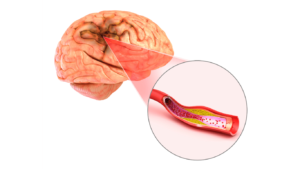Good oral hygiene is not just about a beautiful smile; it's a crucial element for overall health. Recent research suggests a profound connection between dental health and cognitive well-being. This article explores the link between poor oral hygiene and an increased risk of various health problems, including heart disease, diabetes, cancer, rheumatoid arthritis, and even early death.
The Global Scenario
According to a 2022 World Health Organization report, severe periodontal disease affects over 1 billion people worldwide, emphasizing the magnitude of the issue. The urgency to address oral health becomes apparent as emerging evidence points to a potential association between oral health and dementia.
Oral Health as a Modifiable Risk Factor for Alzheimer’s
Observational studies indicate that oral health may be a modifiable risk factor for Alzheimer's disease, the most common type of dementia. Researchers are exploring the intricate relationship between our mouths and minds, identifying bacteria and inflammation as potential culprits.
Connecting Dental and Mental Health
The first documented link between gum disease, tooth loss, and Alzheimer’s comes from a study on aging nuns. The research revealed that severe tooth loss was associated with a staggering 6.4 times higher risk of dementia compared to those who lost fewer teeth. Recent longitudinal studies further support this, showing a higher incidence of tooth loss linked to cognitive decline.
Bidirectional Relationship
While the association between poor oral health and dementia is becoming clearer, researchers face challenges in establishing causation. It's noted that the higher rate of dental problems among those with dementia might be a symptom rather than a cause of cognitive decline. The bidirectional relationship suggests that maintaining oral health becomes even more crucial for those at risk of dementia.
"Good oral hygiene is not just about a beautiful smile"
Complications and Confounding Factors
Several confounding factors, such as smoking and lower educational levels, are associated with both worse oral health and increased dementia risk. Tooth loss, a consequence of poor oral health, can have secondary effects on nutrition and overall health, influencing cognition. The complexity of these interconnections highlights the challenges in definitively establishing a direct link between oral health and dementia.
Mouth Bacteria and Neurodegeneration
Research unveils a fascinating aspect of the mouth-brain connection: bacteria residing in the mouth may infect the brain, potentially contributing to neurodegeneration in Alzheimer’s disease.
P. Gingivalis Bacteria and Alzheimer’s
A 2019 study reported the presence of P. gingivalis bacteria DNA in brain autopsies from Alzheimer's patients. The same DNA was found in the cerebrospinal fluid of individuals with a probable Alzheimer's diagnosis. Toxic enzymes from P. gingivalis were also discovered in the brains, correlating with tau protein pathology—a hallmark of Alzheimer's.
Mouse Studies and Clinical Trials
Studies involving mice orally infected with P. gingivalis showed the accumulation of amyloid beta cellular waste in their brains. Inhibiting bacterial enzymes in these mice reduced amyloid beta production and neuroinflammation. However, a recent clinical trial targeting these bacterial enzymes faced setbacks, highlighting the intricacies of translating findings from studies into effective treatments.
Conclusion
The mouth-brain connection is a field of growing interest, with evidence suggesting that oral health significantly influences cognitive well-being. While the exact mechanisms are not fully understood, the bidirectional relationship between oral health and dementia emphasizes the importance of maintaining a healthy mouth for a healthy mind.







